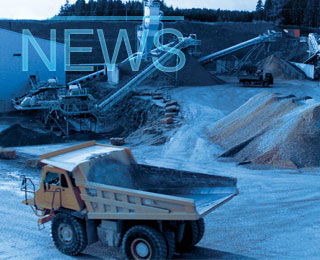Nine months after putting checks on excessive payouts for executives in a referendum, Europe's best-paid voters will decide on Sunday whether to cap the highest wages in a company at 12 times the lowest pay. Swiss corporations and the government have joined forces to oppose the so-called 1:12 initiative, which is forecast to be rejected.
The payscale at Holcim, formed 101 years ago in the Swiss village of Holderbank, underscores the challenge for multinational companies to comply with the proposed rule. Chief executive Bernard Fontana earned a base salary of CHF1.75m (US$1.9m) in 2012, 35 times the lowest-paid employee.
"This is a disaster for this country," said Holcim's Thomas Aebischer, finance manager. "It's a real risk and a real danger for Switzerland remaining an attractive place to do business."
"When you read the text of the proposal - it's very simple, very clever, very misleading," Holcim chief financial officer Aebischer said in an interview in Zurich. "You would never go to the US and think: how much can I pay people now? "You pay whatever you need to pay in order to attract them."
Such opposition to the new rule is also evident at cement industry supplier ABB Switzerland. "Our position is very clear - we are opposed to the 1:12 initiative," said Ulrich Spiesshofer, chief executive officer of ABB, the world's largest maker of power transformers. "It would strongly weaken Switzerland's economy, its competitiveness and the ability of Swiss companies like ABB to compete internationally."
Latest polling for the ballot signal support is waning. A survey released last week showed 54 per cent of voters oppose the proposal, 36 per cent were in favour and 10 per cent undecided. That compares to a poll less than three months after the March referendum limiting severance pay and signing bonuses which suggested the 1:12 proposal could pass.
The initiative's supporters say that, if passed, it will affect only 0.3 per cent of Swiss companies and 3400 managers.

Cement prices recovering in China
Cement prices in China are rebounding strongly as producers seek to improve profitability follow...